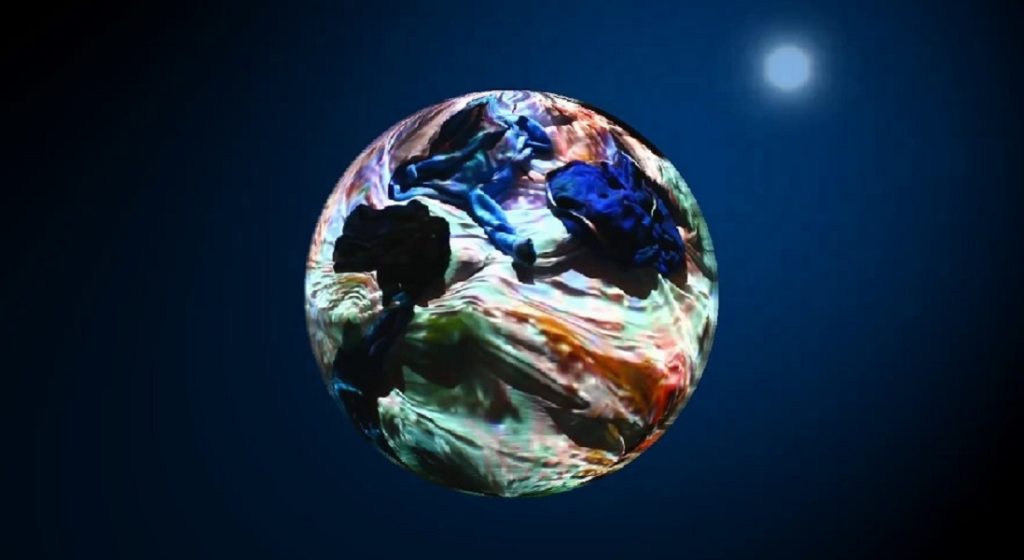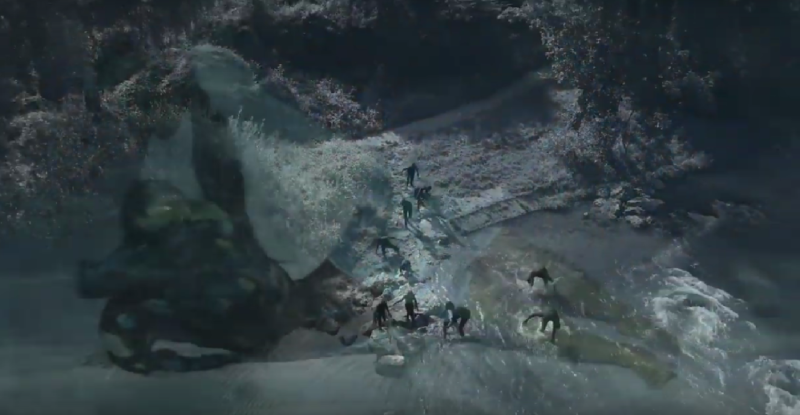Im Jahr 2050 wird es mehr Plastik als Fisch im Ozean geben.
In the year 2050 there will be more plastic than fish in the ocean.
SZ 21. Januar 2016, Study by Ellen MacArthur Foundation, January 19, 2016
Bereits fünf Plastikstrudel von kontinentalem Ausmaß haben sich in den Meeren gebildet. Mehr als 12 Millionen Tonnen Plastikmüll gelangen pro Jahr ins Meer. Davon sind bereits rund eine Million Tonnen Mikroplastik.
Five areas of garbage the size of continents have formed in the sea. More than 12 million tonnes of plastic litter enters the ocean every year including already around 1 million tonnes of microplastic.
Great Pacific garbage patch – Wikipedia.org, Eunomia Report: Plastics in the Marine Environment, 2016
Eine großer Anteil des Mikroplastiks stammt aus unserem Abwasser. Textilfasern haben eine globale Reichweite. Eine Fleecejacke produziert pro Wäsche mehr als 1.7g Mikrofaserabfall.
A big part of micro plastic comes from our domestic wastewater: textile fibres have a global reach. A fleece jacket produces more than 1.7g micro fibres per wash.
Results Microfiber Pollution Project, September 30th, 2016,
Pervasive distribution of polyester fibres in the Arctic Ocean is driven by Atlantic inputs, 2021

Attack of the Sirens (Music: Angriff der Sirenen, MUSICAL WELLENREITER from Christiane Gimkiewicz) to draw attention to the pollution of the ocean by washing textiles containing synthetic fibers like polyester, polyacryl, elasthan etc.
Allein 270’000 Tonnen Mikroplastik erzeugt der Abrieb von Fahrzeugreifen pro Jahr.
Alone 270,000 tonnes of microplastic are produced by the abrasion of vehicle tyres per year.
Eunomia Report: Plastics in the Marine Environment, 2016

Loss of Colour (Music: Kuss der Sirene, MUSICAL WELLENREITER from Christiane Gimkiewicz) addresses the main source of land-based micro-plastics that end up in our seas: the abrasion of tyres.
Mikroplastik lässt sich aus den Weltmeeren nicht wieder herausfischen, Giftstoffe lagern sich an ihm an, es wird von Organismen ganz am Anfang der Nahrungskette aufgenommen und reichert sich z.Bsp. auch in Speisefischen an.
Microplastics can not be fished out of the oceans again, toxins attach themselves to it, it is taken up by organisms at the very beginning of the food chain and accumulates e.g. in seafood.
„Anthropogenic debris in seafood: Plastic debris and fibers from textiles in fish and bivalves sold for human consumption“ by C. M. Rochman et al. in Sci. Rep. (2015)
Politik und Wirtschaft setzten seit Jahrzehnten beim Thema Plastikmüll auf „Recycling“ in Fernost mit den verheerenden Auswirkungen, die wir heute als gigantische Müllstrudel im Ozean „bewundern“ können. Im Wahn der „Elektromobilität“ als Mittel zur Bekämpfung des Klima“wandels“ werden unsere Umweltprobleme erneut in Länder mit geringen Umweltstandards verlagert. Allein die ausländische Gewinnung des Lithiums und die Produktion der Batterien für einen E-Mittelklassewagen verursachen so viel Treibhausgas wie 100’000 gefahrene Kilometer. Auch der deutsche Strommix mit Atomstrom und fossilen Brennstoffen mit einem derzeitigen Anteil von 60% bietet keinen Umweltschutz [ARD Doku/Focus 6.6.2019, Umweltbundesamt 12/2019].